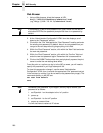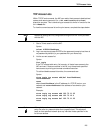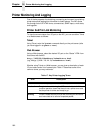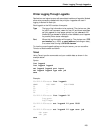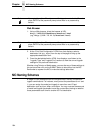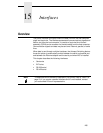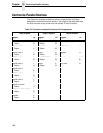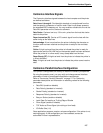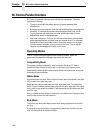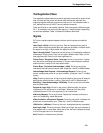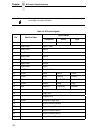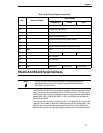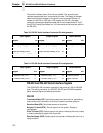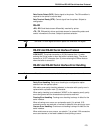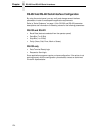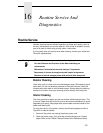
268
Chapter 15 Bi-Tronics Parallel Interface
Bi-Tronics Parallel Interface
Bi-Tronics is a parallel interface with bidirectional capabilities. Features
include the following:
• Timing of the signals has been reduced, thereby speeding data
transmission.
• Bidirectional communication. Both the host and the printer can send data.
• Versatility. If a device cannot send data along particular lines, the Bi-
Tronics interface can send data via other operating modes, such as
Nibble Mode which is discussed later.
• Less user interaction. The host can ask the printer about printing status
and supported features, such as fonts and internal errors. For example,
instead of having to physically check if the printer has run out of paper,
you can create a program to query this from the host. The printer will
respond and a message will display on the host.
Operating Modes
The Bi-Tronics interface supports three operating modes, which are
determined by negotiation between the printer and the host.
Compatibility Mode
This mode provides compatibility with Centronics-like host I/O. Data is
transferred from the host to the printer in 8-bit bytes over the data lines.
Compatibility mode can be combined with nibble and byte modes to provide
bidirectional communication.
Nibble Mode
Eight bits equals one byte. When a byte of data is sent to the printer, the eight
bits are sent over eight data lines.
Some devices cannot send data over their eight data lines. To bypass this,
the Bi-Tronics interface permits data to be sent as half a byte over four status
lines. (Half a byte equals one nibble.) Two sequential four-bit nibbles are sent
over the lines.
Data is transferred from printer to host in four-bit nibbles over the status lines,
and the host controls the transmission.
Byte Mode
The printer and host send data to each other along eight data lines (one bit
per line).
If bidirectional communication is supported by the printer and the host, the
host will take control of the data transfer.



